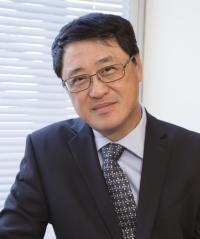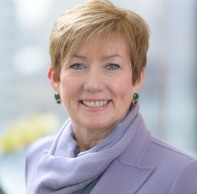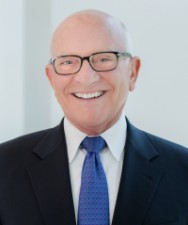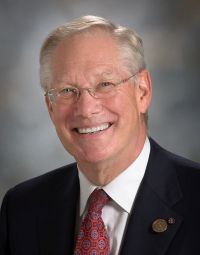Featured Lectures
Thursday, March 28
1:30-2 pm
James Ewing Lecture
“Immunological Principles of Anti-PD-1/PD-L1 Cancer Therapy”
Lieping Chen, MD, PhD
United Technologies Corporation Professor in Cancer Research
Professor of Immunobiology, Dermatology and Medicine (Medical Oncology)
Co-Director, Cancer Immunology Program
Yale University School of Medicine
New Haven, CT
2-2:30 pm
John Wayne Clinical Research Lecture
"Clinical Research: Thinking Outside the Box"
Monica Morrow, MD
Chief, Breast Surgical Service
Anne Burnett Windfohr Chair of Clinical Oncology
Memorial Sloan Kettering Cancer Center, New York, NY USA
Professor of Surgery, Weill Cornell Medical College
New York, NY
Friday, March 29
9-9:30 am
SSO Presidential Address
"Serendipity and Strategy on the Path of Progress"
Armando E. Giuliano, MD
Professor of Surgery
Executive Vice Chair of Surgery
Associate Director, Samuel Oschin Comprehensive Cancer Center
Cedars-Sinai Medical Center
Los Angeles, CA
Saturday, March 30
9:45-10:15am
American Cancer Society/SSO Basic Science Lecture
"The SERM Saga, Something from Nothing"
V. Craig Jordan, OBE, PhD, DSc, FMedSci
Professor of Breast Medical Oncology
Professor of Molecular and Cellular Oncology
University of Texas MD Anderson Cancer Center
Houston, TX
Featured Lecturers' Bios
 |
22
|
Lieping Chen, MD, PhD
United Technologies Corporation Professor in Cancer Research and Professor of Immunobiology, of Dermatology and of Medicine (Medical Oncology)
Co-Director, Cancer Immunology Program at Yale Cancer Center
New Haven, CT |
Lieping Chen studies cell surface proteins which control lymphocyte functions. He is also interested in translating laboratory findings to treat human diseases including cancer. In 1992, Dr. Chen showed the first proof-of-concept study that the B7-CD28 family molecules could be the targets for cancer immunotherapy. This study inspires subsequent studies targeting the B7-CD28 family molecules for the treatment of human cancer.
In 1999, Dr. Chen, then at the Mayo Clinic, first to discover a molecule he called B7-H1, which is now also known as PD-L1. He subsequently showed that PD-L1 is expressed by several types of tumors and that its activity can cause the death of T cells, thus preventing them from eliminating cancer cells. Bringing these lines of inquiry full circle, he later showed that blocking this interaction between PD-1 and PD-L1 by monoclonal antibodies improved the immune system’s ability to eliminate tumors in a 2002 paper. Chen’s work provided an important foundation for the subsequent development of immunotherapies designed to block this activity, and thereby enable more effective immune responses against cancer.
Dr. Chen also initiated and help organized the first-in-man clinical trial of anti-PD-1 monoclonal antibody for treating human cancer in 2006, when he moved to the Johns Hopkins Medical Institute, and developed PD-L1 staining as a biomarker to predict treatment outcome. His discoveries directly led to the development of anti-PD-1/PD-L1 antibody therapy against broad spectrum of human cancers. These discoveries have revolutionized cancer treatment. Today, there are five FDA-approved immunotherapies, for more than 10 major cancer types, that target the PD-1/PD-L1 pathway.
Other important breakthroughs made by Dr. Chen include the development of an agonist antibody against the 4-1BB co-stimulatory pathway, also known as CD137. Multiple 4-1BB-targeting antibodies have since been developed and are now being evaluated in clinical trials for a variety of cancer types. Dr. Chen’s laboratory also discovered several molecular pathways with T cell costimulatory and coinhibitory functions and/or their applications in human disease treatment. These pathways include B7-H2 (ICOSL), B7-H3, B7-H4, B7-H5/CD28H, PD-1H (VISTA), LIGHT/HVEM, B7-H2/CD28/CTLA-4 (human), SALM5/HVEM. Many of these findings are now being developed clinically for the treatment of human diseases.
 2222 2222 |
Monica Morrow, MD
Chief, Breast Surgical Service
Anne Burnett Windfohr Chair of Clinical Oncology
Memorial Sloan Kettering Cancer Center, New York, NY USA
Professor of Surgery, Weill Cornell Medical College
New York, NY |
Monica Morrow, MD is chief of the Breast Surgery Service, Anne Burnett Windfohr Chair of Clinical Oncology, co-chief of the Breast Program at Memorial Sloan Kettering Cancer Center, and Professor of Surgery at Weill Medical College of Cornell University. Prior to this, she served as the G. Willing Pepper Chair in Cancer Research and the chairman of the Department of Surgical Oncology at Fox Chase Cancer Center. From 1993 to June 2004, she was Professor of Surgery at Northwestern University Medical School and director of the Lynn Sage Comprehensive Breast Program at Northwestern Memorial Hospital. From 1999 – 2001 she also served as director of the Cancer Department of the American College of Surgeons and executive director of the American Joint Committee on Cancer. Dr. Morrow received her BS degree Magna Cum Laude from the Pennsylvania State University and her MD from Jefferson Medical College. She did her surgical residency at the Medical Center Hospital of Vermont, followed by two years of surgical oncology training at Memorial Sloan Kettering Cancer Center in New York.
Dr. Morrow is the recipient of the Outstanding Professional Woman Award from the State of Illinois Federation of Business and Professional Women, the Alpha Omega Alpha Outstanding Clinical Faculty Award from the University of Chicago, the Women Making a Difference Award for Medical Innovations from the State of Illinois, and the Speaking of Women’s Health Foundation Award. She is a Distinguished Alumni of the Pennsylvania State University and a Distinguished Alumni of Jefferson Medical College. In 2012, she was the recipient of the Gianni Bonnadonna Breast Cancer Award from ASCO, and in 2013, she was the William McGuire lecturer at the San Antonio Breast Cancer symposium. She is an Honorary Fellow of the Royal College of Physicians and Surgeons (Glasgow) and the Royal College of Surgeons of Ireland and was the President of the Society of Surgical Oncology in 2012-13.
She is the editor of three breast cancer textbooks and has published more than 500 book chapters, manuscripts, and editorials. She co-chaired national committees on standards for breast conserving surgery in 2002 and 2007 and led national efforts to develop guidelines for margins for breast conserving surgery in invasive cancer and DCIS in 2013 and 2015.
 |
22
|
Armando E. Giuliano, MD
Professor of Surgery
Executive Vice Chair of Surgery
Associate Director, Samuel Oschin Comprehensive Cancer Center
Cedars-Sinai Medical Center
Los Angeles, CA |
Armando E. Giuliano, MD, is Executive Vice Chair of Surgery, Chief of Surgical Oncology, Professor of Surgery, and the Linda and Jim Lippman Chair in Surgical Oncology at Cedars-Sinai Medical Center. After receiving an M.D. degree at the University of Chicago, Dr. Giuliano completed his surgical residency at the University of California, San Francisco, and a fellowship in surgical oncology at the University of California, Los Angeles (UCLA). He began his academic career at UCLA where he became Professor of Surgery, Director of Breast Services, and Assistant Dean of Students. He retains an appointment as Clinical Professor of Surgery both at UCLA and at the University of Southern California.
Dr. Giuliano has been a clinician-researcher his entire career. He has served as chairman of the Breast Organ Site Committee of the American College of Surgeons Oncology Group Breast Research Committee and was author and principal investigator for the sentinel node Z0010 and Z0011 studies which significantly changed the standard of care for patients with early breast cancer. The main focus of his clinical research continues to be management of early breast cancer and quality of life of breast cancer patients. He was the first to successfully perform a sentinel node biopsy for breast cancer and has been a pioneer in the field. This procedure has enabled early-stage breast cancer patients to avoid having more extensive surgery.
Currently Dr. Giuliano is President of the Society of Surgical Oncology and also serves on the American College of Surgeons Board of Governors. He is very active in teaching fellows and residents and has served as chairman of the Breast Fellowship Program Directors Committee for the Society of Surgical Oncology. Additionally, he has earned numerous teaching awards. Dr. Giuliano became a Fellow of the Royal College of Surgeons of Edinburgh ad hominem (FRCSEd). In 2008, he received the Veronesi Award for his worldwide contributions to breast cancer research. In 2011, he was one of only three physicians to be awarded Castle Connolly’s national Clinical Excellence Award. He also received the Glenn-Robbins Award from Memorial Sloan-Kettering Cancer Center and the Susan G. Komen for the Cure® Brinker Award for Scientific Distinction in Clinical Research.
Dr. Giuliano is a frequent speaker at national and international conferences and has been a visiting professor in the U.S., Europe and Asia. Further, he is the author of more than 500 scientific articles and book chapters and has edited a textbook. His work on lymph node metastasis has changed the management of breast cancer worldwide.
 |
22
|
V. Craig Jordan, OBE, PhD, DSc, FMedSci
Professor of Breast Medical Oncology
Professor of Molecular and Cellular Oncology
University of Texas MD Anderson Cancer Center
Houston, TX |
V. Craig Jordan obtained his BSc, PhD, DSc (an academic degree in the UK) in Pharmacology, and the first honorary Doctor of Medicine Degree for contributions to Humanitarian Research all from University of Leeds, UK. He established “Tamoxifen Teams” to study first tamoxifen then all SERMs at Leeds (1974- 1980), Wisconsin (1980-1993), (Director of Breast Cancer Research and Treatment program), Northwestern University (Director of Breast Cancer Research Program), Fox Chase Cancer Center (Vice President for Medical Sciences), Georgetown University (Scientific Director). He is currently the Dallas/Ft. Worth Living Legend Chair of Cancer Research and Professor of Breast Medical Oncology at MD Anderson Cancer Center. He previously held (3) inaugural named chairs endowed for him. His discovery and contributions to SERMS is recognized internationally with membership of the National Academy of Sciences (2007) and Medicine (2017), Fellowship of the Academy of Medical Sciences (UK Equivalent of (NAM)), and honorary Fellowship of the Royal Society of medicine (only 100 elected worldwide). In 2016 he was identified as one of the 4 individuals (zur Hausen, Senn, Veronesi, Jordan) who established the clinical standard of care in the 21st Century. Her majesty, Queen Elizabeth II appointed him to Order of the British Empire (OBE) for services to international breast cancer research.